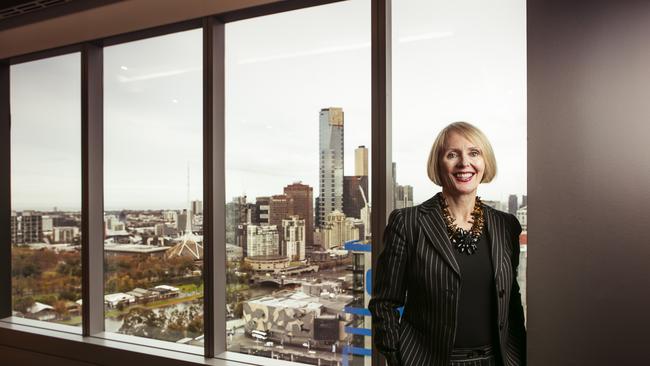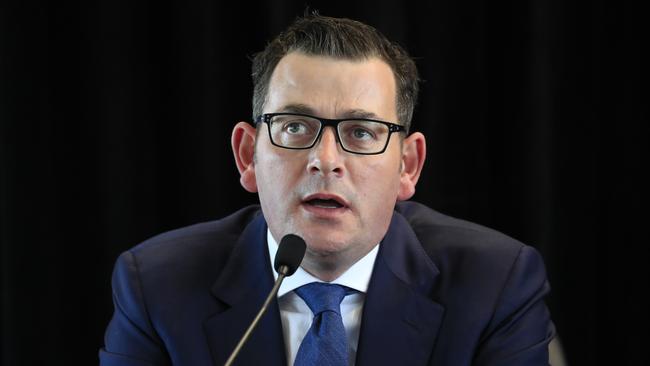Mega-council mooted
As reported in today’s Herald Sun, leading think tank the Committee for Melbourne raises the potential for merging all 32 Melbourne metropolitan councils into a single mega-council or six separate clusters.

Opinion
Don't miss out on the headlines from Opinion. Followed categories will be added to My News.
BUDGETARY pressures and efficiency demands often dictate a need for economies of scale.
Government is not immune from the principle and when we are talking about public money, whether it be taxpayers or ratepayers, then greater bang for the buck is always worth pursuing.
As reported in today’s Herald Sun, leading think tank the Committee for Melbourne raises the potential for merging all 32 Melbourne metropolitan councils into a single mega-council or six separate clusters.
Without doubt, the City of Melbourne has unique functions and responsibilities when it comes to governing the state capital and delivering services in the commercial, tourism and residential mix.
But many of our inner-city councils share similar goals and parameters.
Way back in 1994, then-Premier Jeff Kennett amalgamated 210 councils into 78 (which are now 79 local government areas), making major inroads into cost savings and drastically cutting the number of local councillors. Although controversial at the time, with criticisms that local representation would suffer, Victorians adapted to the change. Three tiers of government is a lot of bureaucracy for any community to digest, or afford. The long-running debate about the necessity of retaining local government has not been helped by excessive and unnecessary waste by some councils on issues well outside their purview. Moreland, Yarra and Darebin councils have too often strayed into state or national political agendas on issues including refugees, major road projects or climate change — with significant ratepayer funds spent on prosecuting ideology.
Grassroots representation and voice is welcome, but it must be on the issues for which councils have a mandate.
Committee for Melbourne chief executive Martine Letts believes it is time for a new evolution in local government — a smaller number of stronger councils — to capitalise on greater economy of scale, greater consistency and less duplication.
Re-arrangement of councils should reflect the “spatial and social divide” which exists between the inner city and outer metropolitan councils, she said.
When you consider more than 50 council officers are earning as much or more than the Premier, Victorians would be right to demand a tightening of the belt to allow more of their rates to go back into basics.
Indeed, almost 1000 council officers are earning $150,000 a year, more than 100 receive $250,000 a year and 51 get $290,000 or more.
The state government is set to create six metropolitan council partnerships but this is simply another level of bureaucracy, not less.
Existing councils predictably object to talk of more amalgamation but like any form of government they must be subject to cost-saving reviews and adapt to modern demands.
‘FIX’ MAY FAIL YET AGAIN
IF Daniel Andrews’s myopic and corrosive attempt to push through laws to relegate the CFA through the Fire Rescue Victoria Bill fails, it will mark a defining defeat and new low point for the Premier.
Mr Andrews has staked his political reputation on the issue.
The Premier’s first boast “this needed to be fixed and I fixed it” a year ago had already proven to be empty spin. Victoria then went through another summer fire season with the divisive issues of a new enterprise bargaining agreement and the spectre of diluted CFA autonomy hanging over our fire services.
If the current Bill, separating the CFA as a stand-alone volunteer service and creating FRV in place of the Metropolitan Fire Brigade, tanks in the Upper House this week, Mr Andrews will have again monumentally failed to “fix” a crisis he has perpetuated.

While the state government had the numbers in the Lower House to ram through the Bill, the Upper House was never a guaranteed rubber stamp. No doubt there has been some frenetic backroom horsetrading to get some independents across the line and the resolve of MPs like DLP Rachel Carling-Jenkins to stand up for her electorate will be tested.
The proposed legislation ejects CFA volunteers from 35 integrated stations and grants a massive geographic and manpower expansion to the United Firefighters Union and its career firefighting membership, without any real consultation with the CFA or the 60,000 volunteers it represents.
Vote 1 Local Jobs MP James Purcell has committed to rejecting it and Ms Carling-Jenkins has previously said she was unlikely to support it in its current form. She should stick to her guns.
The bad blood already spilt in this politicised saga threatens to undermine the CFA’s invaluable “surge” capacity in times of major fire or crisis. Along with the botched waste of $1.2 billion in the dumped East West project, the radical changes to fire fighting services in Victoria, imposed from above without any nuance or negotiation, will continue to hang around this premier’s neck like an albatross.


